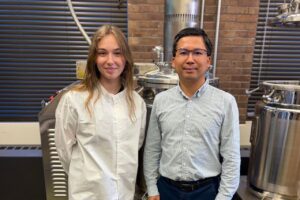Illinois State University researcher leads project to enhance AD efficiency

The research focuses on producing higher-quality, more efficient biogas from organic waste, addressing key waste management challenges and advancing sustainable energy solutions.
“This research is important to me because I believe sustainability is critical to our society, and effective waste management technologies play a vital role in advancing it,” Yang said in a statement to Illinois State University.
Yang’s interest in anaerobic digestion stems from its advantages over traditional waste management approaches such as landfilling and incineration.
“Anaerobic digestion converts waste into energy under mild and environmentally friendly conditions,” he added.
The project aims to make organic waste easier to break down and enhance the internal environment of digesters to maximise biogas production.
Unlike many federally funded projects, this research is supported by a global Fortune 500 company, reflecting its focus on practical, commercial solutions.
Graduate and undergraduate students are central to the research. They carry out laboratory experiments, digester operations, data analysis, and public outreach, including lab tours and conference presentations.
Support from Illinois State University and CAST has been key. The University’s Research and Sponsored Program office has assisted with contracts and project management, while the College, alongside the Departments of Health Sciences and Agriculture, has provided facilities, student hiring support, and equipment.
The project also involves interdisciplinary collaboration, including Dr John Sedbrook, co-principal investigator, and contributions from Dr Rob Rhykerd and Dr Nicholas Heller.
Beyond scientific aims, the research supports Illinois State’s commitment to sustainability, community
engagement, and student education. It also partners with local organisations such as the Ecology Action Center and the Bloomington-Normal Water Reclamation District to address environmental and waste challenges.Looking ahead, Yang and his sponsor hope to expand the research into pilot studies to bring the technology closer to commercial application. “There are numerous opportunities to convert waste into energy as society strives for sustainability,” he said.















